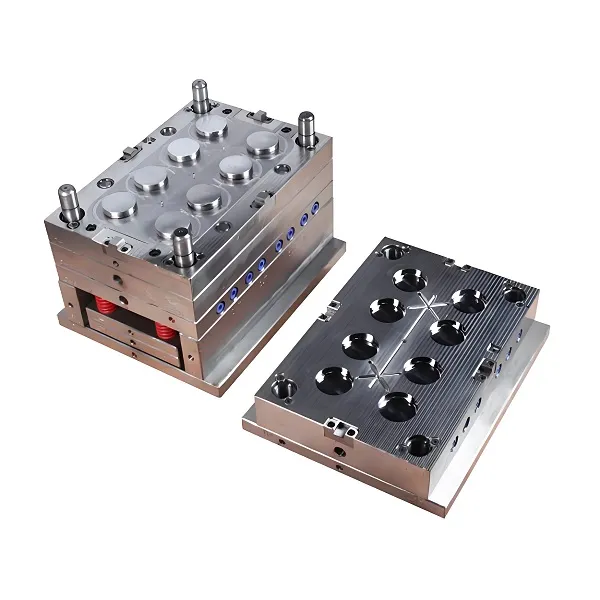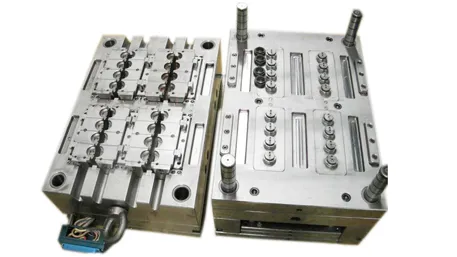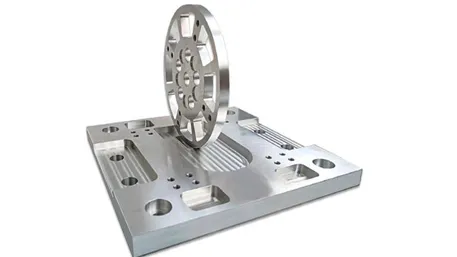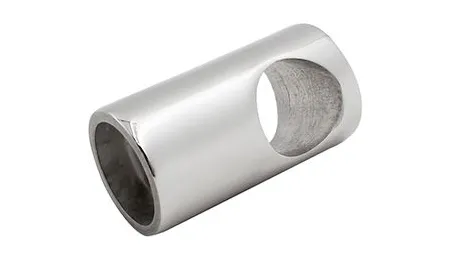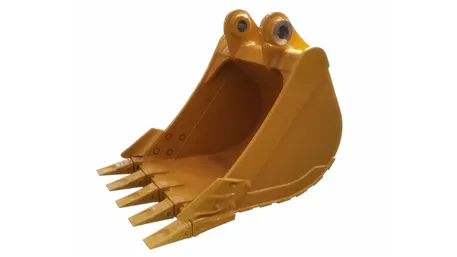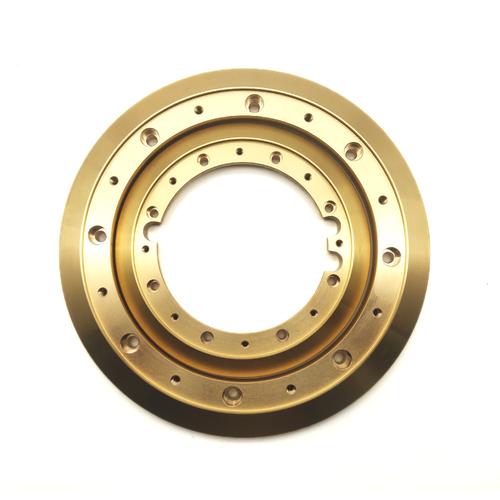In the ever-evolving landscape of automotive and aerospace engineering, the demand for high-performance, lightweight, and durable engine components has reached new heights. Custom engine die casting services, leveraging advanced molding techniques and specialized materials, have emerged as a pivotal solution for manufacturing critical engine parts. This article delves into the technical intricacies, material selections, quality control measures, and practical applications of custom engine die casting, offering a comprehensive guide for industry professionals seeking top-tier solutions.
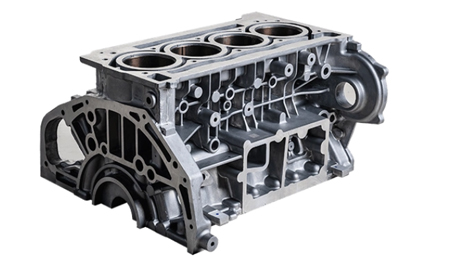
- Precision Pressure and Velocity Control: Employing state-of-the-art 800 – 4500-ton servo die casting machines, injection pressures ranging from 12 to 180 MPa are utilized. This enables molten metals to fill molds at velocities between 4 and 50 m/s, ensuring seamless formation of complex engine structures. For intricate components, a minimum wall thickness of 0.7 mm can be achieved, optimizing space and weight without sacrificing structural integrity.
- Thermal Management Mastery: The mold temperature control system boasts an accuracy of ±2°C, while alloy melting temperature fluctuations are tightly regulated within ±4°C. Real-time thermal monitoring via high-precision thermocouples effectively mitigates issues like cold shuts and shrinkage cavities, maintaining a remarkable finished product yield rate of over 97.5%.
- Stringent Dimensional Accuracy: Adhering to GB/T 6414 – 1999 standards, general dimensional tolerances for engine castings are maintained at CT4 – CT6 levels (e.g., ±0.35 mm for a 120-mm dimension). High-precision molds can achieve CT3 accuracy (±0.18 mm), significantly reducing post-casting machining requirements and enhancing overall production efficiency.
- Superior Material Selection: H13 hot work die steel with a hardness of 48 – 52 HRC, enhanced with advanced PVD (Physical Vapor Deposition) coatings (thickness 3 – 5 μm), is the material of choice for molds. This combination boosts the mold’s thermal fatigue resistance by 50%, extending its lifespan to over 700,000 cycles and minimizing production interruptions.
- Digital Design and Simulation: Utilizing industry-leading software like UG and Moldflow, detailed mold flow analyses are conducted. Gate positions are optimized with an error margin of ≤0.25 mm, and runner system pressure losses are reduced to 10%, ensuring efficient material utilization and minimizing casting defects.
- High-temperature Resistant Alloys: Capable of die casting high-performance alloys such as Inconel 718, which can withstand service temperatures of up to 700°C with a tensile strength ≥ 1250 MPa. These alloys are ideal for critical aerospace engine parts operating under extreme conditions.
- Composite Material Integration: Through innovative semi-solid die casting techniques, ceramic particles (e.g., alumina) can be integrated with aluminum alloys. This results in a 60% increase in component hardness and a fourfold improvement in wear resistance, making them suitable for high-load engine components like piston pins.
- Material Integrity Testing: Direct-reading spectrometers with an accuracy of 0.01% are employed to analyze alloy compositions. Hydrogen-oxygen analyzers keep the hydrogen content in molten aluminum below 0.12 ml/100 g, eliminating the risk of porosity-related failures.
- Dimensional and Geometric Inspection: Coordinate Measuring Machines (accuracy ±0.004 mm) conduct full-scale scans of engine castings. Critical dimensions undergo 100% inspection, while non-critical dimensions follow a strict AQL = 0.8 sampling standard based on GB/T 2828.1.
- Internal Defect Detection: High-resolution X-ray flaw detectors (resolution ≤0.15 mm) identify internal defects such as shrinkage cavities and inclusions. Ultrasonic thickness gauges (accuracy ±0.008 mm) ensure uniform wall thicknesses, guaranteeing component integrity.
- Case Study: Engine Block Customization: For a high-performance automotive engine, an A356-T6 aluminum alloy engine block was custom die cast. Compared to traditional casting methods, the weight was reduced by 22%, and dimensional accuracy was improved to ±0.25 mm. Vacuum die casting technology was employed, reducing internal porosity to 0.18%. After T6 heat treatment, the block’s tensile strength reached 380 MPa, meeting the rigorous performance requirements of the engine.
- Technical Innovations: Advanced cooling channel designs were integrated during the casting process, optimizing heat dissipation. The surface roughness of critical mating surfaces was maintained at Ra ≤ 1.2 μm, ensuring excellent sealing and reducing the risk of coolant leakage.
- Requirement: High-temperature Turbine Housings: Aerospace engines demand components that can withstand extreme temperatures and mechanical stresses. Custom die casting of Inconel 718 turbine housings was undertaken to meet these challenges.
- Solution: Through precise control of the die casting process and heat treatment, the turbine housings achieved a tensile strength of 1300 MPa at 650°C. Specialized surface treatments were applied to enhance corrosion resistance, enabling the components to operate reliably in harsh aerospace environments.
- Initial Consultation and Requirement Gathering: Our team responds within 12 hours to client inquiries, conducting in-depth discussions to understand specific engine component requirements. A detailed DFM (Design for Manufacturability) report is provided promptly, outlining potential challenges, cost estimates, and production timelines.
- Mold Design and Development: Leveraging CAD/CAE collaborative design, standard mold development typically takes 5 – 8 weeks. Regular design reviews are conducted to ensure the mold meets all technical specifications, and the first-piece confirmation process is completed within 60 hours.
- Production and Manufacturing: We support small-batch trial productions (minimum order quantity 200 pieces) and offer mass production capabilities of 200 – 600 pieces per hour, depending on component size and complexity. Rigorous in-process quality checks are performed at every stage to maintain product consistency.

